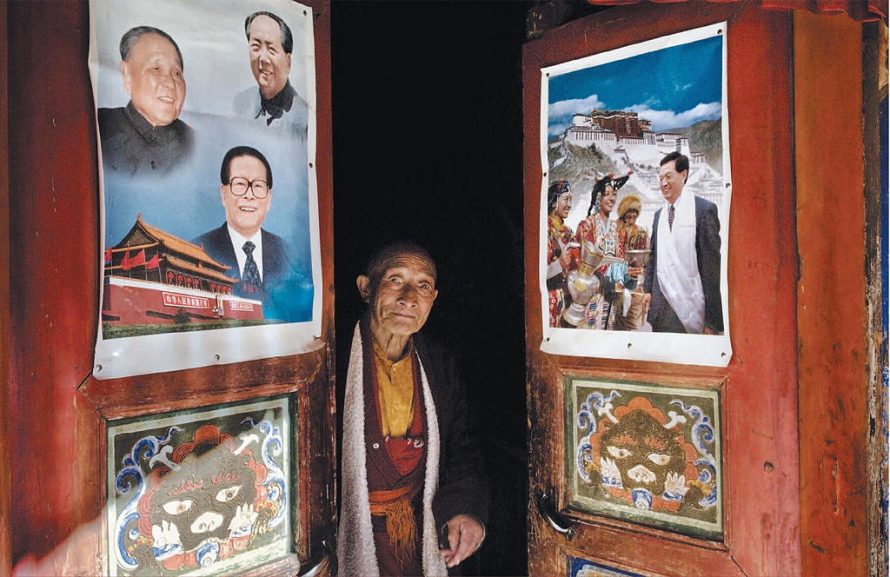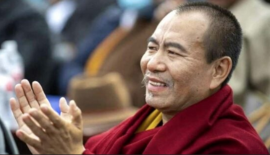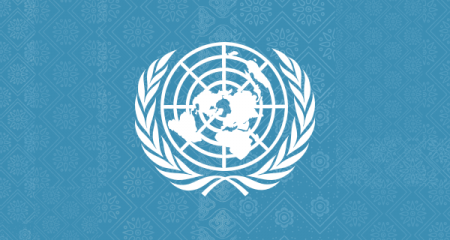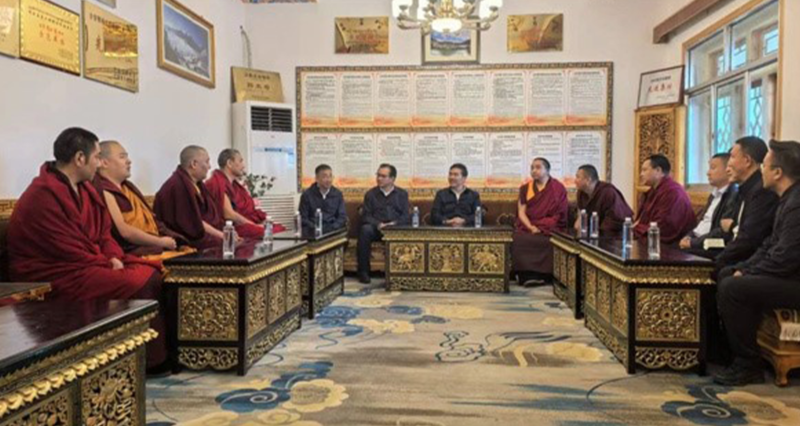In recent years, the Chinese government has tightened its control of Tibetan Buddhism, which it sees as a threat to the Chinese state because it is an expression of a distinct Tibetan identity, and because Buddhist institutions have the potential to unify and empower individuals outside the Party state.
Under President Xi Jinping in particular, Tibetan Buddhism has been the main target of proactive policies aimed at “Sinicizing” religion, meaning to shape religion to the diktats of the Chinese Communist Party for political purposes. To do so, the Chinese government has created an authorised catalogue of verified ‘living Buddhas’, halved the 10,000 resident population of the Larung Gar Buddhist Academy, increased “political re-education” campaigns for monks and nuns, and formal training for Tibetan Buddhist teachers and cadres posted to monasteries. In addition, the authorities have adopted a number of laws and measures equating ‘terrorism’ with an undefined ‘extremism’ linked to religion, thereby creating a more dangerous political environment for monks, nuns and lay Buddhists.

At the same time, small acts of religious freedom – including worship of the Tibetan spiritual leader the Dalai Lama – are still criminalized in most parts of Tibet. Restrictions on religious practices have been placed on government workers, with many threatened with losing their identity cards, social benefits and jobs, and controls on children participating in religious activities have been strengthened. As part of its objective to contain and control Tibetan Buddhism, the Chinese state has also indicated plans to appoint its own reincarnation of the 14th Dalai Lama, in total contravention to Buddhist religious tradition and the fundamental right of Tibetan Buddhist communities to follow their own spiritual process without government interference.
Related news and resources

Tibetan Buddhist leader detained as Chinese authorities shutter yet another Tibetan language school
Choktrul Dorje Ten Rinpoche, a prominent Tibetan Buddhist leader, was detained by Chinese authorities around 4 December 2025, under unknown circumstances. He is the founder of the Dorje Ten Ethnic Vocational and Technical High School, a Tibetan-medium instruction school which has now been forcibly closed.

Tibet at the 60th Session of the United Nations Human Rights Council
At the 60th session of the United Nations Human Rights Council (UNHRC), held in Geneva from 8 September to 8 October 2025, the situation in Tibet was a focal point of concern among governments and civil society organizations commenting on China’s human rights record.

In Tibet, heightened security and intimidation surround the Dalai Lama’s 90th birthday
As thousands of Tibetans and supporters around the world gathered to celebrate the 90th birthday of His Holiness the Dalai Lama on July 6 – including major commemorations in Dharamsala, India – inside Tibet, the atmosphere remained tense and subdued.